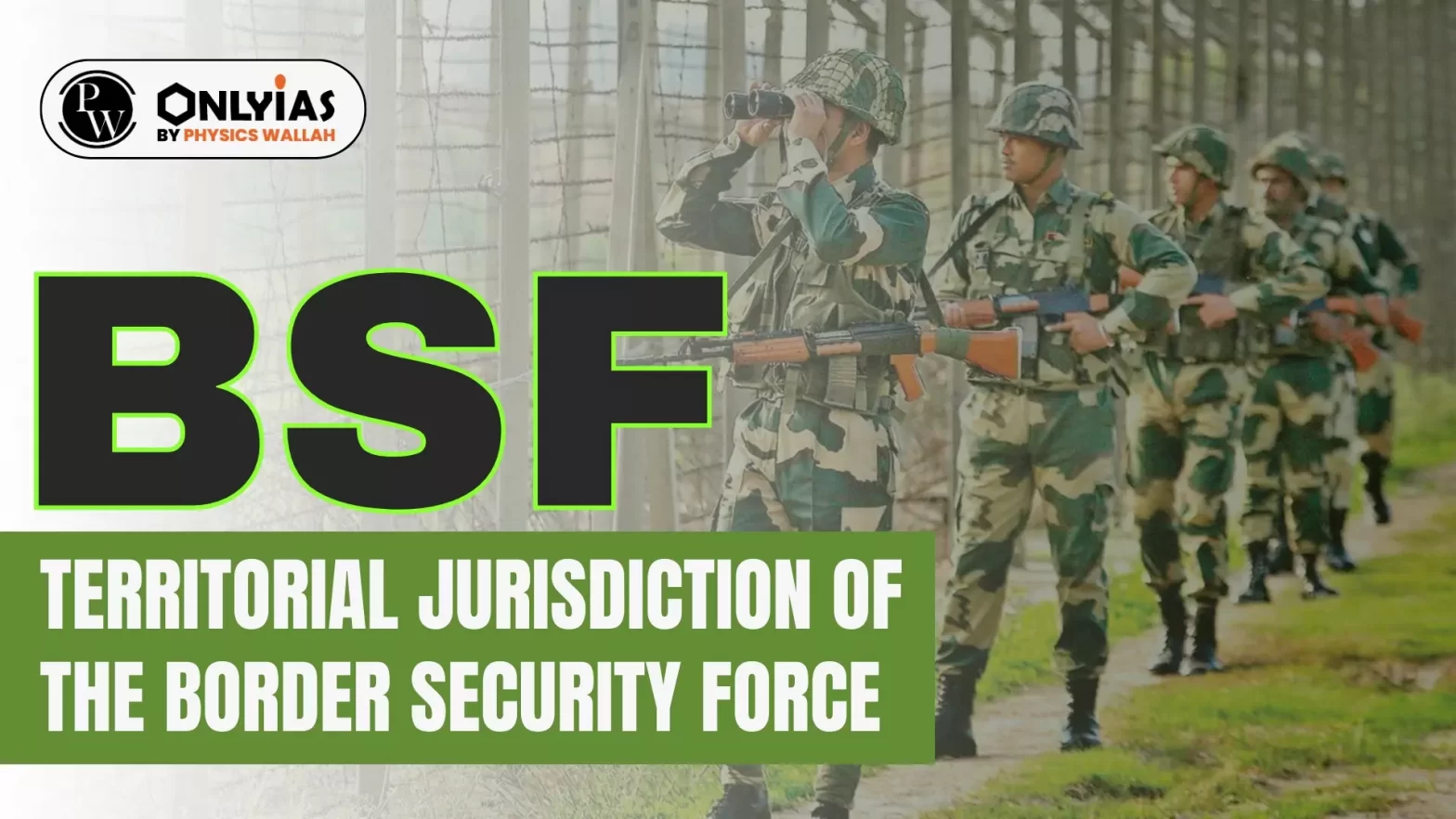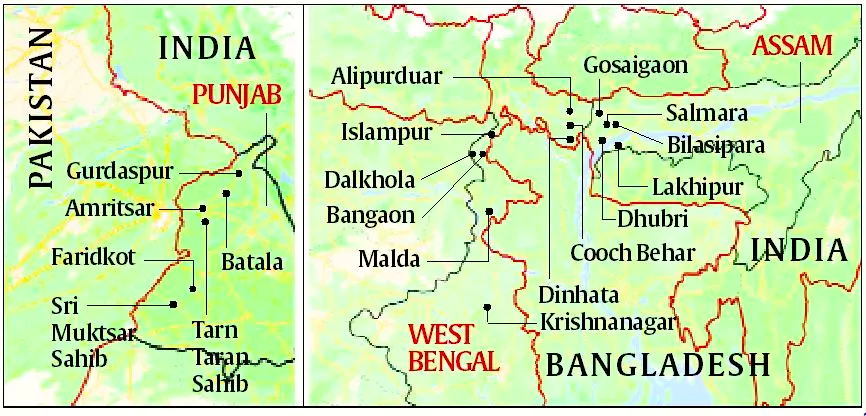![]() 24 Jan 2024
24 Jan 2024
English
हिन्दी

This article is based on the news “Limits and borders: On the territorial jurisdiction of the Border Security Force” which was published in the Hindu. The Supreme Court decided to examine the questions that arise from the expansion of the Border Security Force’s (BSF) jurisdiction by the Central Government.
| Relevancy for Prelims: Supreme Court, BSF (Border Security Force), Articles In The Constitution Of India, and Border Disputes Of India.
Relevancy for Mains: BSF Territorial Jurisdiction and Security Challenges And Their Management In Border Areas. |
|---|
Article 131 of Indian Constitution:
|
|---|
About BSF (Border Security Force)
|
|---|

Constitutional Prerogative of Union Government
|
|---|
Naga People’s Movement of Human Rights versus Union Of India case, 1997:
|
|---|
| Must Read | |
| NCERT Notes For UPSC | UPSC Daily Current Affairs |
| UPSC Blogs | UPSC Daily Editorials |
| Daily Current Affairs Quiz | Daily Main Answer Writing |
| UPSC Mains Previous Year Papers | UPSC Test Series 2024 |
<div class="new-fform">
</div>